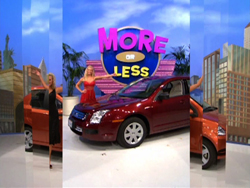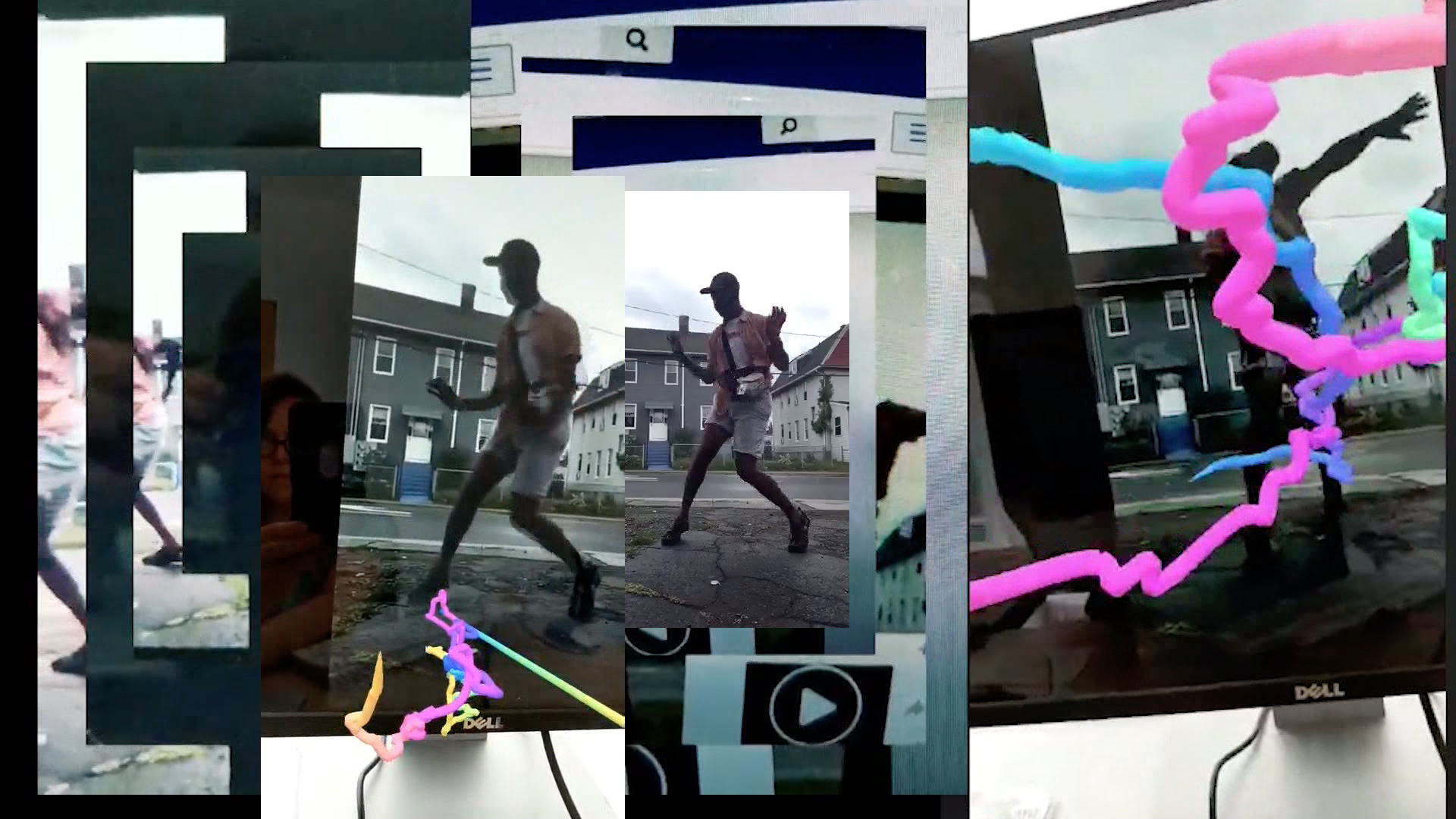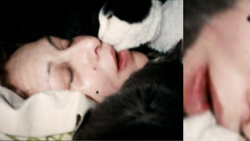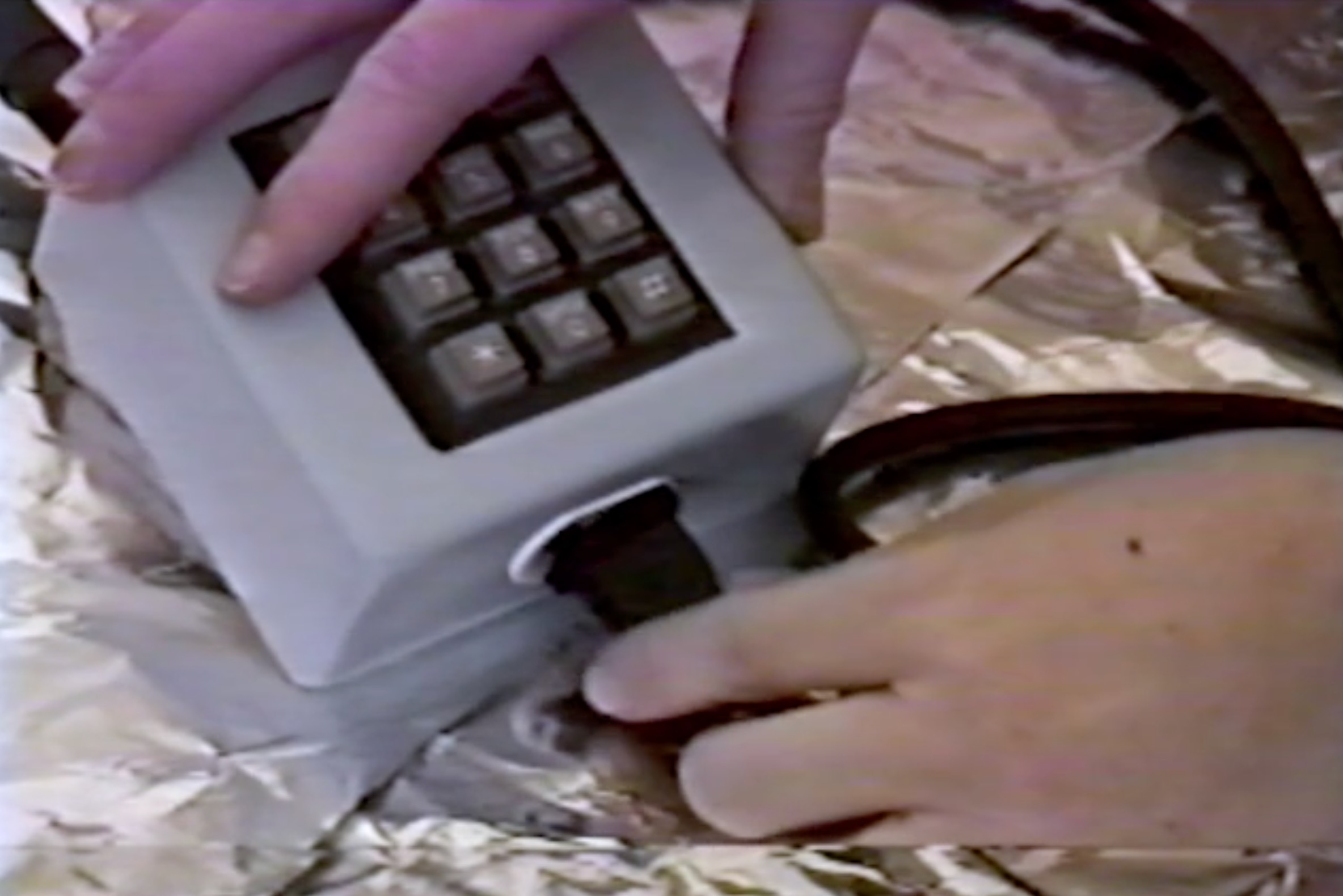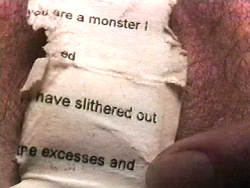Search Results
Search Results
Title Results
Your search returned 802 Titles
Initially created as an editing exercise for his students at UCSD, Jenkins’ Inconsequential Doggereal mixes poetic narrative fragments of self-shot footage with moments ripped from the unending flow of TV news, advertising, and entertainment. The images and sounds of mainstream television are...
Infinite Doors draws on the determined staying power and unremitting stimulation of prize-oriented game show culture. Utilizing clips from The Price is Right, Murata edits a kinetic series of prize unveils. Unrelenting audience applause and an excessively animated announcer make the clip at once comical and peculiar. The superfluity of reward and overload of visual cues become absurd in their excess and begin to smother the very excitement they are meant to induce.
Infinitely Unresolved is a collaboration with performance artist and dancer Arien Wilkerson (TNMOT AZTRO). LoVid and Wilkerson exchanged short dance sequences and DMs that were edited into a dance on desktop collage composition. The video was shot entirely using Facebook and Instagram Live....
Infinity Kisses – The Movie completes Schneemann's exploration of human and feline sensual communication. It incorporates extracts of the original 124 self-shot 35mm color slide photo sequence, Infinity Kisses, in which the expressive self-determination of the ardent cat was recorded over an eight-year period. Infinity Kisses – The Movie recomposes these images into a video, in which each dissolving frame is split between its full image and a hugely enlarged detail.
Recently restored by the artist, and added to distribution thirty years after the catalytic event that inspired it, Inforeceptor is a lighthearted yet ominous anticipation of the cresting World Wide Web, marked by the launch of the first public web browser, Mosaic, in 1993. Shot on both Hi-8 video and Super 8 film, and incorporating whimsical effects, the playful hybrid approach to image making also reflects the progress of information technology, and how media has altered the human experience of the physical world. Lucas writes: "I completed this video in my last semester at Cooper Union in spring 1994 when there was a spectacle around the information superhighway in news media, commercials and magazines, before Netscape Navigator was released, also in 1994."
Information Gladly Given but Safety Requires Unnecessary Conversation
Tom Kalin
1995, 1:03 min, color, sound
Inherent in the Rhumb Line is a silent motion drawing. "With the advent of the rhumb line — a line of constant bearing or loxodrome — a cognitive pattern developed in the Western world that allowed the possibility to conceive pillage on voyages of discovery. Inherent in the Rhumb Line is an imperative for use — regardless of consequence — a flattened convolution that marries landscape with loot and preordination."
In a vast underground cave, Schneemann and seven nude women perform the ritualized actions of Interior Scroll — reading the text as each woman slowly extracts a scroll from her vagina. The scroll embodies the primacy of an extended visual line shaped as both concept and action. The extracted text...
Interscape was first performed at the Eisenhower Theater, Kennedy Center in Washington, D.C. in April 2000. The dance is made up of a series of trios and duets, as well as ensemble passages in which the dancers circle the stage in big leaps. Robert Rauschenberg designed the décor and costumes, naming his design Interscape Mirage; the piece is performed to John Cage's One, composed in 1991.
Intriguing People (Enredando As Pessoas)
Eder Santos
1995, 70 min, color, sound, Portuguese with English subtitles
Brazilian artist Eder Santos's first feature length work, shot in Spain, employs a rich and varied score by Stephen Vitiello to mobilize the mystic journey of an image prophet who can project his vision into the world. This prophet finds himself in a landscape where images — regardless of their...

